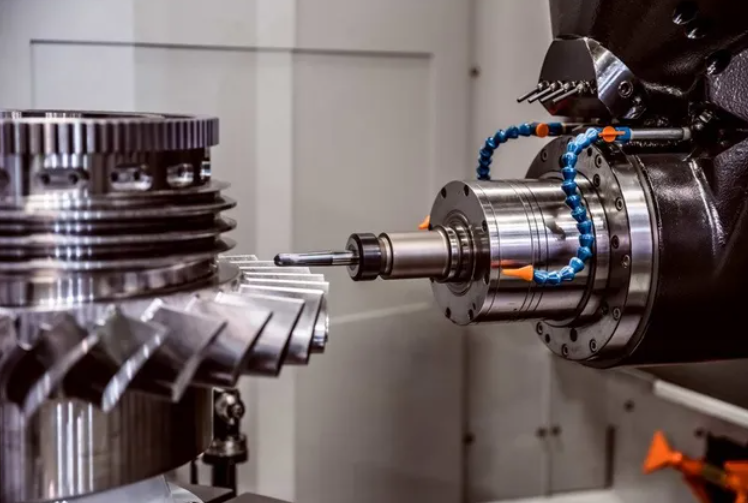
Essential Guide to CNC Machining Materials
Introduction
CNC machining has become a fundamental part of modern manufacturing, allowing companies to produce highly precise components efficiently. The performance, longevity, and functionality of machined parts are heavily influenced by the choice of materials. Selecting the right cnc machining materials is crucial for ensuring product quality, reducing manufacturing costs, and meeting the specific requirements of various industries.
Classification of CNC Machining Materials
CNC machining materials are primarily categorized into metals, plastics, and composites. Each category has distinct properties that make it suitable for specific applications.
Metal Materials
Metals are widely favored due to their strength, durability, and heat resistance. Commonly used metals in CNC machining include:
- Aluminum: Lightweight, corrosion-resistant, and easy to machine. It is commonly used in aerospace, automotive, and electronics industries.
- Stainless Steel: Known for its high strength and corrosion resistance, stainless steel is ideal for medical instruments, structural components, and chemical processing equipment.
- Brass: Offers excellent machinability and corrosion resistance, often used in fittings, decorative parts, and electrical components.
- Titanium: Extremely strong yet lightweight, making it suitable for aerospace, medical implants, and high-performance automotive components.
Plastic Materials
Plastics are chosen for their low weight, chemical resistance, and electrical insulation properties. Common plastics used include:
- Acrylic: Transparent, easy to machine, suitable for displays, protective covers, and signage.
- Nylon: Strong and wear-resistant, ideal for gears, bushings, and other functional mechanical components.
- Polycarbonate: Provides impact resistance and durability, commonly used in electronics, lenses, and safety equipment.
- Acetal (Delrin): Offers low friction and dimensional stability, making it perfect for precision components.
Composite Materials
Composite CNC machining materials combine two or more substances to achieve enhanced strength, durability, or weight reduction. Carbon fiber reinforced plastics and fiberglass are widely used in aerospace, automotive, and sporting industries for their excellent strength-to-weight ratio.
See also: Quality Assurance in Custom Software: Zchwantech’s Best-Practice Approach
Key Factors for Material Selection
Choosing the right cnc machining materials involves evaluating several critical factors that affect the performance and manufacturing process.
Mechanical Properties
Strength, hardness, toughness, and flexibility determine a material’s suitability for specific applications. Metals such as titanium and stainless steel provide superior strength, while plastics like nylon offer flexibility and impact absorption.
Machinability
Machinability is a key consideration because it impacts tool wear, production speed, and surface finish. Materials like aluminum and brass are easier to machine, while harder metals require specialized tools and slower cutting speeds.
Thermal and Chemical Resistance
Components that are exposed to high temperatures or corrosive environments need materials that can maintain stability. Stainless steel and polycarbonate are frequently used in such scenarios due to their resistance to heat and chemical corrosion.
Cost and Availability
Budget and accessibility of materials are practical considerations. While premium metals like titanium provide exceptional performance, they are more expensive. Manufacturers must balance cost with the material’s mechanical and thermal properties to achieve efficiency.
Benefits of Using Appropriate Materials
Using the right cnc machining materials provides several advantages:
- Precision: Stable material properties allow tighter tolerances and consistent part dimensions.
- Durability: Wear-resistant and strong materials improve component longevity.
- Design Flexibility: Suitable materials enable complex and intricate geometries.
- Cost-Effectiveness: Efficient machining reduces tool wear, production time, and maintenance costs.
Applications Across Industries
CNC machining materials are applied across multiple industries, each with unique material requirements.
Aerospace Applications
Lightweight metals like aluminum and titanium are used in aircraft structures, engine components, and landing gear. High strength-to-weight ratios are essential to meet performance and efficiency standards.
Automotive Applications
Metals and plastics are used for engines, transmissions, and interior parts. High-strength alloys ensure that components withstand mechanical stress, temperature variations, and wear over time.
Medical Applications
Biocompatible metals such as titanium and stainless steel are used for implants, surgical instruments, and prosthetics. Plastics like polycarbonate and acetal are chosen for durability and chemical resistance in medical devices.
Electronics and Technology
Lightweight metals and plastics are used for housings, connectors, and heat sinks. Thermal conductivity, electrical insulation, and mechanical stability are essential for electronics manufacturing.
Emerging Trends in CNC Machining Materials
Material innovation is driving new possibilities in CNC machining:
- Advanced Metal Alloys: New alloys provide superior strength, corrosion resistance, and machinability.
- Reinforced Composites: Increasing use of carbon fiber and fiberglass for lightweight, high-strength components.
- Sustainable Plastics: Eco-friendly plastics are being developed to minimize environmental impact.
- Smart Materials: Materials that respond to temperature, stress, or environmental changes enhance component performance.
Conclusion
Selecting the appropriate cnc machining materials is critical for producing high-quality, durable, and cost-effective components. Metals, plastics, and composites each offer unique benefits depending on the application. Evaluating mechanical properties, machinability, thermal and chemical resistance, and cost ensures successful manufacturing outcomes. With continuous advancements in material science, CNC machining remains an indispensable technology across industries, providing precision, efficiency, and versatility.




